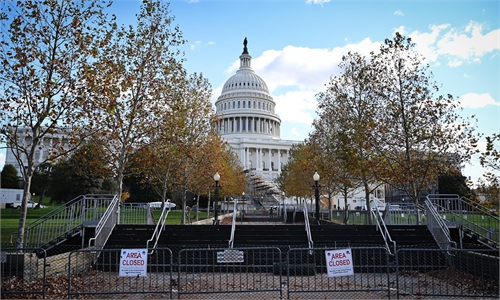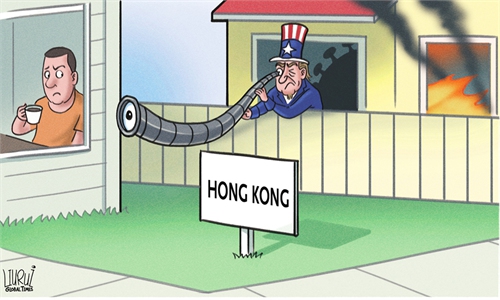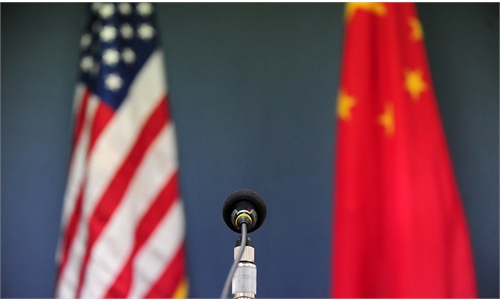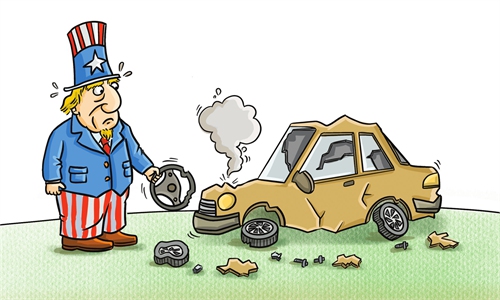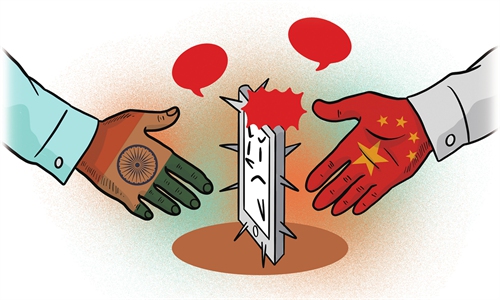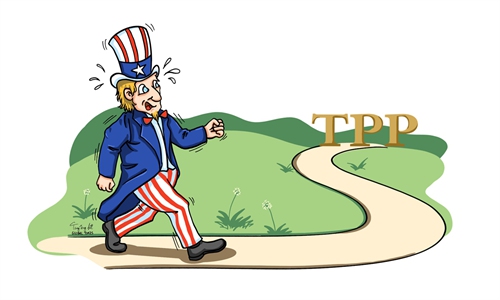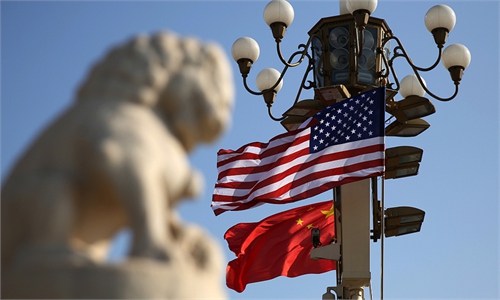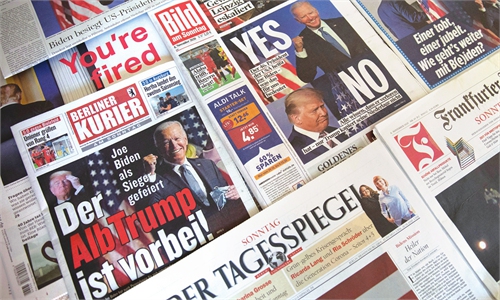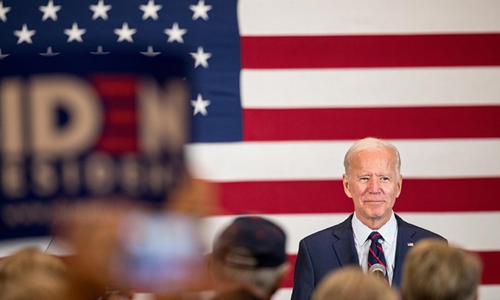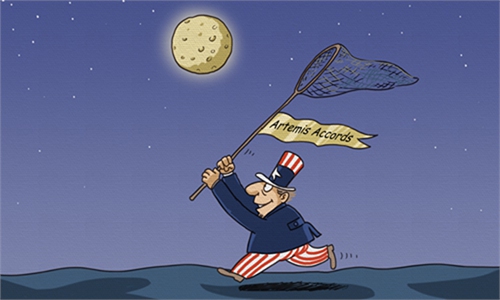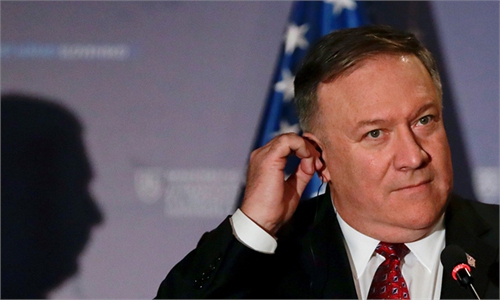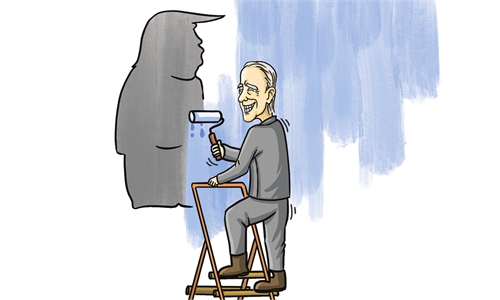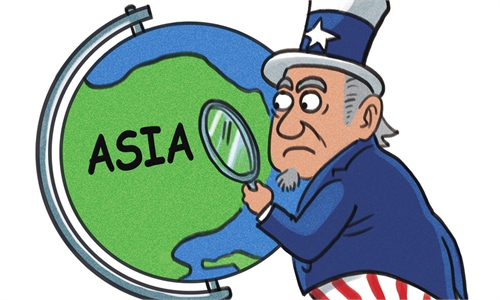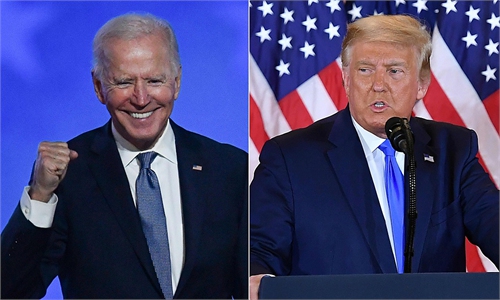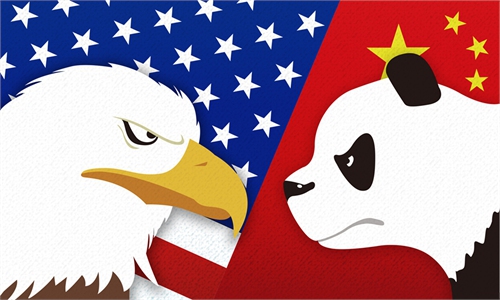Compete and Coexist: US, China could develop new concept of relationship between great nations, Graham Allison says
As the bilateral relationship between the world's two largest economies has been spiraling down to the freezing point under the Trump administration, politicians, business leaders and academics are now looking into a major question of concern: whether it's time to reset the bilateral ties and whether China-US relations damage can be repaired?
Biden administration may use old tricks in dealing with Hong Kong
Some analysts in China have not ruled out the possibility that Biden will build on Trump's Hong Kong attack. This entails engaging in ideological struggles, which Democrats are good at.
Senior Chinese official's attendance at US chamber of commerce event shows US sanctions are unpopular: FM spokesperson
A senior Chinese legislator on the US' sanctions list on Thursday called for American companies to make positive efforts in putting China-US relations back-on-track.
Can Pacific Deterrence Initiative unite US regional allies?
When it comes to the Asia-Pacific region, the US has not established a large military alliance in the Asia-Pacific region as it has in Europe. Therefore, it will be more difficult for the US to ask regional countries to raise military defense budgets to coordinate with US strategy to counter China.
US: qualitative changes, dysfunctional systems
Today, we need some Chinese intellectuals to dig into American society and achieve a similar monumental work on the US in the new era. This is something worth looking forward to. In the era of great changes, intellectuals can contribute a lot.
Hyping China-India Galwan clash shows US intention to stir up regional conflict: expert
A newly published US government report accusing China of “planning the brawl in the Galwan Valley” has become the latest bit of hype from the US to stir up conflict in this region, which observers said is doomed to fail.
Washington should embrace free trade, multilateralism
With US President-elect Joe Biden entering the White House in January, his intended approach in readjusting the US' foreign trade policy is put under the spotlight. A top adviser for Biden warned that the US should reflect on the recently concluded Regional Comprehensive Economic Partnership (RCEP) and China's interest in joining Comprehensive Progressive Trans-Pacific Partnership (CPTPP), signaling a possible choice for Washington to rejoin the regional trade pact which Trump ditched four years ago.
Biden is obliged to end the trade war with China sooner
US President-elect Joe Biden on Wednesday offered the clearest signal of his approach toward the multi-year trade war and overall economic and trade relations with China. In a wide-ranging interview with The New York Times, Biden said that he would not immediately remove tariffs on hundreds of billions of dollars worth of Chinese products against WTO rules, and that he would "consult" with US allies to develop a "coherent strategy" against China.
China makes vaccines global, US does it selfishly
If the US is afraid of losing its stature, nothing is stopping it from following in China's lead. America is more than welcome to use vaccines as a way to help some of the poorest countries in the world – not for isolationist purposes.
Will China's consumption power reverse US decoupling pursuit?
With its retail sales hitting a record high of 41.2 trillion yuan ($6.26 trillion) in 2019, China will soon surpass the US as the world's largest retail market for consumer goods, Lian Weiliang, deputy chief of the National Development and Reform Commission, China's top economic planner, said on Sunday.
'America First' drives US in wrong direction with world roadmap
The US is at a crossroads with its domestic political and social divisions. These will set limits on any plans no matter who governs. But the "America First" policy has proved more harmful to the country than good.
Biden faces daunting job to restore cracked alliance system
Once the friendship between the US and its allies is hurt, it can be partially repaired. But it cannot be restored to its original state. The cracks will not go away.
US is fanning Cold War-like competition on the moon
Fundamentally, the US should abandon its hegemonic mentality. Otherwise, such unilateralism in space affairs will cause harm to its image, and the US' future promotion of cooperation in space will draw more suspicions and questions.
Pompeo hits Obama-era strategy for own political gains
Though Trump lost the election, he received over 72 million votes. This signals he still has a large following in the US. From this, there has been much discussion on how much resistance the Biden administration will now face. When making and implementing new foreign policies, Biden is not expected to see many obstacles, as US presidents tend to have much power in foreign policy.
'Trumpism without Trump' to continue influencing US foreign policy
The Biden administration might not directly usher in a new “Biden era” soon, but will instead have to manage a messy continuation of the "post-Trump era." "Trumpism without Trump" will continue to exert an important influence on US foreign policy.
Can enfeebled Washington still dominate Asia's configuration?
America may find it more and more difficult to take charge of Asia. Looking ahead, Asia is more likely to enter a multi-polar era rather than a bipolar system of confrontation between China and the US — let alone a unipolar system in which China replaces America.
Biden transition faces rocky road while China marches on
Trump reportedly is ready to begin the formal transition process. This indicates that the US will commence to “correct” its policies of the past four years. The US tends to achieve a kind of balance by dramatic swing and confrontations. By contrast, continuity is the greatest strength of the Chinese political system.
Miles Yu's interview with VOA reflects US government's chaotic, extreme China policy
As Biden has identified China as a “serious competitor,” this will determine Biden's China policy, returning it to a relatively normal state of affairs – to a dynamic where disagreements coexist with cooperation.
